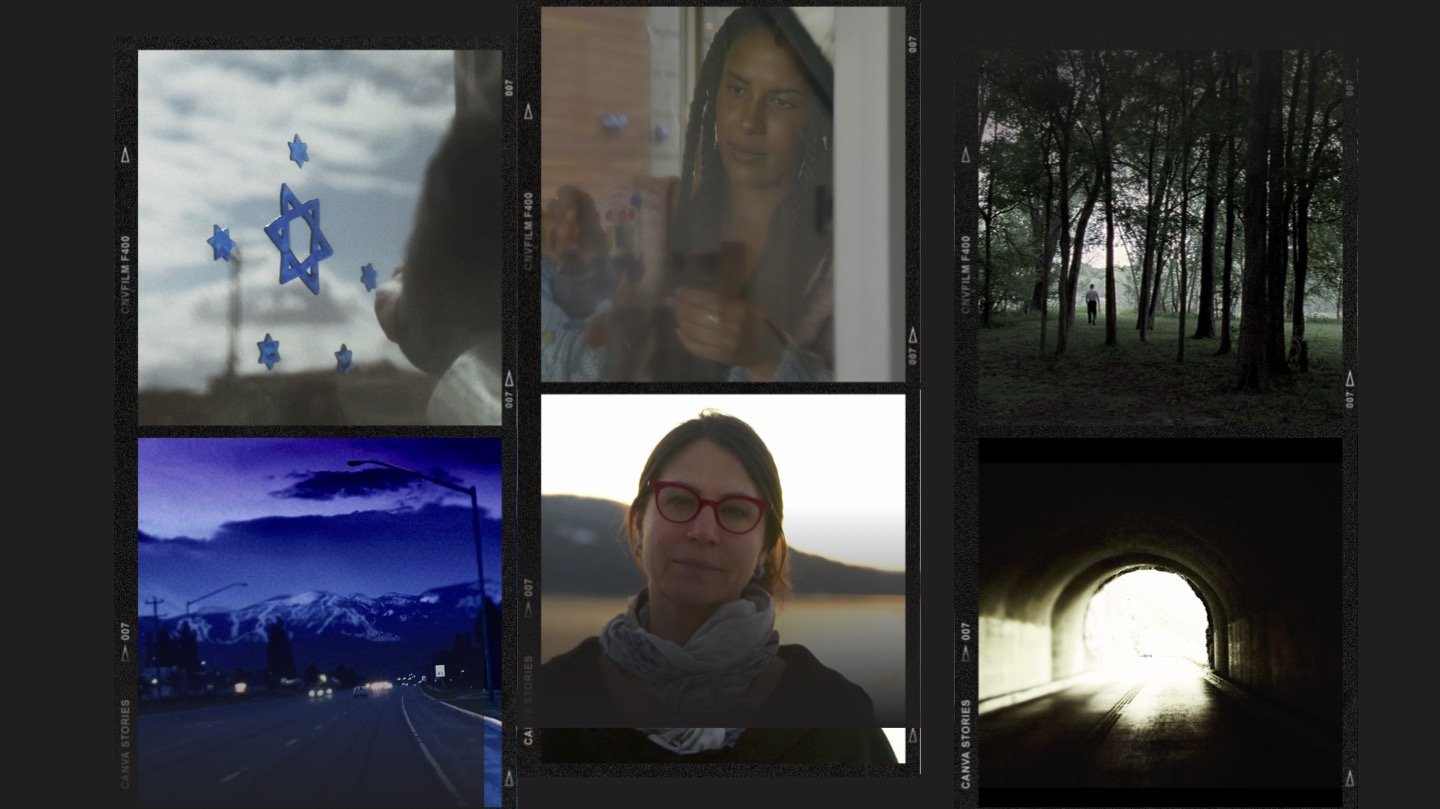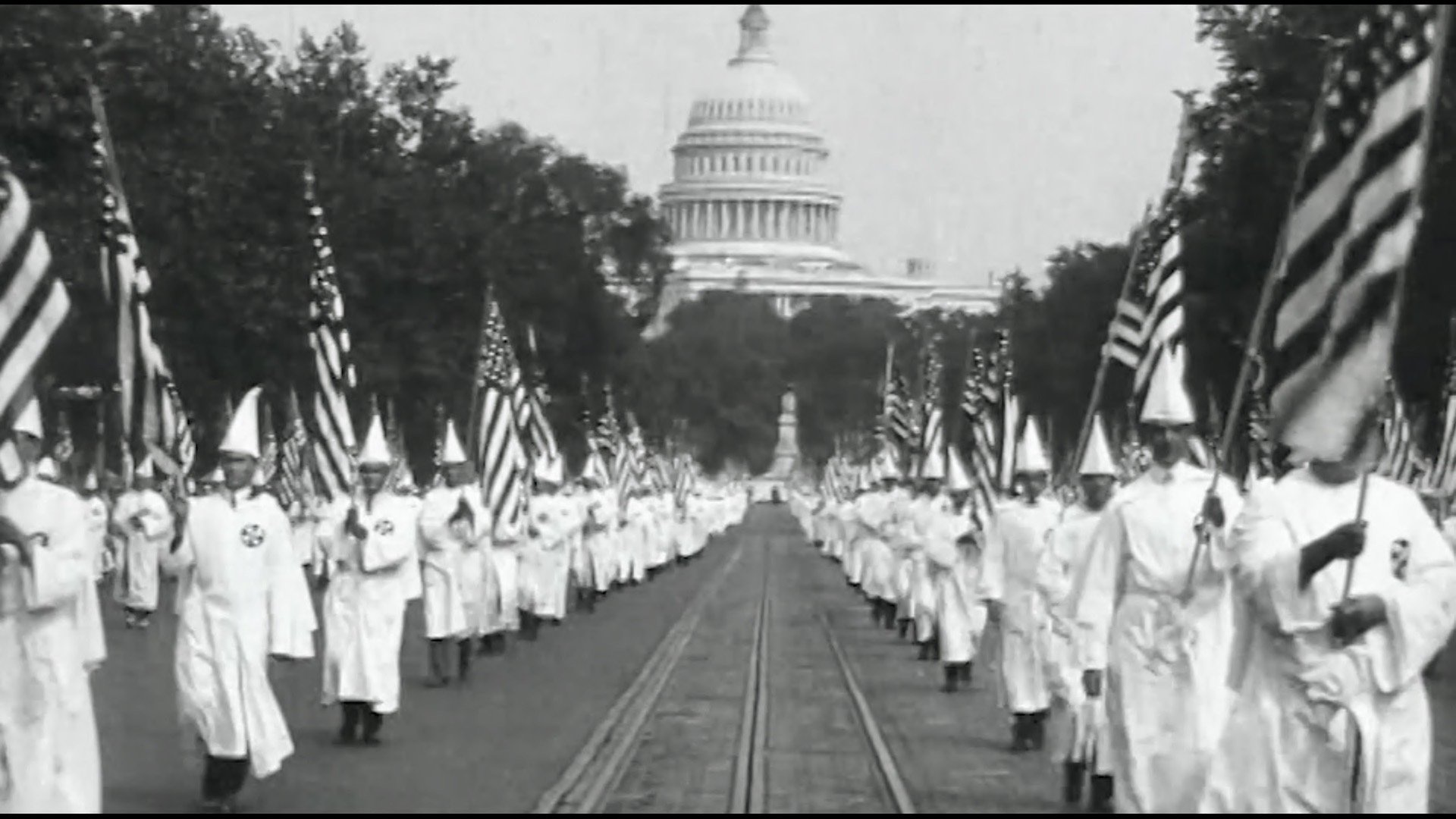
Troll Storm
Film Synopsis
A successful realtor and soccer mom’s life is turned upside down when Neo-Nazis unleash a troll storm against her and her family. In the face of an alarming growth of American fascism, she finds solidarity with her community by standing up, fighting back and ultimately filing a landmark case for the First Amendment, setting a precedent that could shape America’s future.
Director I Eunice Lau Editor I Yasu Inoue
Set in the heart of Whitefish, Montana, a seemingly idyllic town, the antisemitic attacks against our film protagonist Tanya Gersh started soon after Donald Trump won the presidential election. As the storm of online harassment intensifies, the Whitefish community is forced to confront the alarming rise of far-right extremism. In response to the threat, Tanya takes a stand, finding solidarity within her community as she fights back against hate, fear, and prejudice with a lawsuit against her pepetrators.
As Tanya journeys to understand what happened to her, she finds in the story of Holocaust survivor Stephen Jacobs uncanny parallels between the rise of white nationalism in the United States and the rise of fascism in Germany. Donald Trump’s promise to “Make America Great Again” is a thinly-veiled battle cry for a return to the days when white supremacy existed blatantly. Directed by Eunice Lau and produced by Brooke Swaney and Zachary Kerschberg over three years, TROLL STORM chronicles the harrowing journey of a woman who transforms from a victim of cyber-hate into a courageous advocate for justice and free speech. The documentary captures the spirit of resilience, the power of community, and the pursuit of justice in the face of adversity. And by telling her story, Tanya renders visible the architecture of oppression that holds us down. More than ever, this film captures the zeitgeist of our present turmoil.
Why this story now: Director’s statement
This story came to me, after my documentary “Accept the Call” premiered on PBS Independent Lens and soon after, a viewer emailed me that I “should do a documentary about Tanya Gersh”. It was not initially clear to me why he believed that my film, centered on a Muslim family impacted by Islamophobia in Minnesota, is connected to a Jewish family impacted by antisemitism in Montana. As I dug into the research, a glaring truth came to light: antisemitism and Islamophobia are not only entangled, but deeply rooted in the same systems of white supremacy and Christian hegemony.
Tanya’s torment began soon after Donald Trump was elected president, and the American public witnessed a surge of blatant, anti-Jewish expression in broad daylight. Likewise, Zacharia Abdurahman’s childhood was blighted by President George W. Bush’s “War on Terror”. In attempting to understand how ordinary Americans like them have fallen victim to the system of white supremacy, I see how the violence of America’s military campaign ushered in not just a new era of anti-Muslim bias and bigotry, but unleashed - in Spencer Ackerman’s words - a “racist fanaticism” that allowed Trump to capitalize on while driving his anti-immigrant views that demonize nonwhites as alien marauders. By bringing the historical narrative of Holocaust survivor Stephen Jacobs into Tanya’s story, we hope to place her story within the context of a larger canvas. History is not simply the study of the past, but also an explanation of the present, and can serve as a forecast to trending events. The parallels between 1930s Germany and present-day America are alarmingly similar and equally terrifying.
The team behind "Troll Storm" is mostly BIPOC filmmakers. Collectively, we have inherited a long history of oppression and discrimination, as well as stories of resistance. As artists, our tools to forge change is storytelling. Such as the story of this courageous mother who fought back against the all-powerful white supremacists and provided a new narrative that makes her victory a rallying cry for a united movement against hate. Stories that transcends class, race and ethnicity, and inspire us to recognize our common interest in the collective liberation for all people, and the centrality of ending white supremacy - in the struggle to end all related systems of oppression.
Tanya meets Stephen Jacobs, who survived the Holocaust as a child, and learns his story
Tanya, with her lawyer David Dinielli, speaks to the press at the courthouse
Whitefish residents show up in support of “Love Lives Here” rally
Winner of NYWIFT Award for Excellence in Documentary Directing: 25th Woodstock Film Festival
“We appreciate Eunice Lau’s journalistic approach to social justice in choosing her subject in Troll Storm. Shining a light, during these unprecedented political times, on a Jewish woman’s personal battle against antisemitism shows us just how easily we could find ourselves becoming the target of harmful harassment. And by choosing to resist, unjust oppression is not only made visible it is held accountable.”
Audience and Impact
Holocaust survivor Stephen Jacobs tells his story of persecution under Nazi Germany’s pogrom against Jews, revealing the parallels in the lexicon and methodology of anti-Semitism in contemporary America and the Third Reich. By doing so, the film raises urgent and pertinent questions: Are we similarly headed toward state-sanctioned discrimination? Are the forces of hate increasingly powerful, such that the unthinkable becomes thinkable again? Or will Tanya’s legal victory evidence that white supremacy will not ultimately be tolerated?
A history of the white supremacist movement: Spreading hate in Europe and the U.S. in the 1930s, to neo-Nazis rioting in Charlottesville, 2017
“The parallels are uncanny, it makes your skin crawl. To think about the similarities about the late 1920s, and what is happening in the United States today. The difference is, we don’t need to repeat history.”
The Team
Brooke Swaney | Producer
Brooke (enrolled Blackfeet and Salish descendant) works to tell Indigenous stories and stories from other marginalized communities. DAUGHTER OF A LOST BIRD (PBS/America Reframed) is her first feature documentary. Most recently she made a short film about rising star and Blackfeet actress Lily Gladstone (Firelight Media/American Masters). She also produced BELLA VISTA (Rotterdam), SIXTY FOUR FLOOD (PBS & PBS Digital) and the first season of the podcast ALL MY RELATIONS with Matika Wilbur and Dr. Adrienne Keene. She has been a fellow through PBS Wyncote, a NATIVe Fellow at the European Film Market/Berlinale, Woodstock/WhiteFeater Arts, the Native Arts and Cultures Foundation, and Sundance/Time Warner. She holds an MFA in Film from NYU.
Zachary Kerschberg | Producer
As the grandson of immigrants that escaped the Holocaust in 1939, Zachary is deeply committed to telling this meaningful and important cautionary tale to the American people. A narrative and documentary filmmaker based in New York, Zachary’s films have screened at Cannes, SXSW, and the NYFF and have been distributed nationally and internationally on PBS, Cable Networks, and streaming platforms. He is a recipient of a Fulbright Fellowship and a National Board of Review Grant, as well as an alum of the Berlinale Talent Campus and a former resident at SF Filmhouse. Zachary holds an honors B.A. from UC Berkeley in Romance Languages and Literatures and M.F.A.’s in Dramatic Writing and Film Production from New York University.
Eunice Lau | Director and Producer
A former journalist, Eunice’s works have appeared on Discovery Channel, Al Jazeera English and Channel News Asia. Her feature documentaries have aired on PBS, Amazon, AppleTV, and YouTube Originals, earning her the NYWIFT Award for Excellence in Documentary Directing at the 2024 Woodstock Film Festival. Whether chronicling climate grief through compost (in Son of the Soil) or confronting inherited trauma and radicalization (in Accept the Call), Eunice’s work explores existential questions about humanity and the search for meaning in a turbulent world. Her work is supported by the Jerome Foundation, Tribeca Film Institute, ITVS, Chicken & Egg Pictures, Women Make Movies, Points North Institute, YouTube Impact Lab and IFP. Featured in publications such as The New York Times, Variety, and Filmmaker Magazine, Eunice holds an MFA in Film Directing from New York University.
Yasu Inoue | Film Editor and Co-Producer
Inspired by the cinema of John Cassavetes and Akira Kurosawa, Yasu came to New York City to study filmmaking, and editing. He has since produced and edited over 50 features and series including “Accept the Call”, “A-Town Boyz”, “Newman”(Best documentary, 2016) and “Man from Reno” (Best Narrative Feature, LA Film Festival 2014). His clients include Netflix, HBO, CNN Films, Showtime and PBS. He is a key member of the Delphin Films team.





















